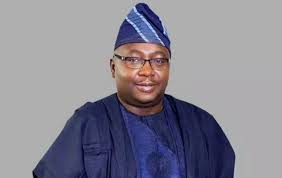In spite of its vow to uphold the rule of law, the federal government has been notorious for disobeying court orders in the last three years as ELEOJO IDACHABA reports
Since it came into office three years ago, the present administration has been disobeying court orders, in spite of President Muhammadu Buhari’s promise that his government will uphold the rule of law during his inaugural speech on May 29, 2015. Since then, not fewer than five high profile cases, among other judicial pronouncements, were flagrantly disobeyed by the government and its agencies without any recourse to appeals by them.
Dasuki still behind bars
Former National Security Adviser (NSA) to former President Goodluck Jonathan, Col Sambo Dasuki (rtd), who was accused of embezzling $2.1 billion meant for the procurement of arms and illegal possession of arms, is still in detention despite several court orders. First, Justice Adeniji Ademola of the Federal High Court Abuja had ordered for his release to travel abroad for medical check up. In spite of this order, the Department of State Security Service under whose custody Dasuki is being kept failed to obey the order.
On December 18 2015, Justice Hussein Baba-Yusuf also of the Federal High Court Abuja, had also granted Dasuki and others a bail condition and a bond of N250m. Even though they met the laid down conditions, government again refused to obey the order.
On December 21, 2015 the Federal Capital Territory (FCT) High Court, also granted bail to Dasuki, alongside the former Minister of State for Finance, Alhaji Bashir Yuguda, former Sokoto state governor, Alhaji Attahiru Bafarawa and three others. Specifically, they were granted bail by Justice Peter Affen over a suit filed by the Economic and Financial Crimes Commission (EFCC), bothering on 22-count charges of alleged diversion of funds, misappropriation and breach of trust to the tune of 19.4 billion naira. Despite the order, the DSS refused to comply with the bail condition for the former NSA.
On October 4, 2016, following the refusal of the government to obey several court orders, the former NSA had appealed to the ECOWAS community court which also granted him bail.The court also ordered the government to pay a reparation in the sum of N15 million to him over arbitrary arrest, but the government still failed to obey the order. In this case, the Attorney General of the Federation and Minister of Justice, Alhaji AbubakarMalami, said the government was not under any compulsion to respect the order of ECOWAS court. Twice in 2018, precisely on January 17 and April 6, the Abuja Division of the Federal High Court again affirmed its earlier judgments for the release of the ex NSA but all these fell on deaf ears as he is still in detention four years after. Significantly, the government had never appealed any of these judgements.
Zakzaky, wife in ‘protective custody’
In December 2015, following the altercation between the convoy of the Chief of Army Staff, Lt Gen Tukur Yusuf Buratai and members of the Islamic Movement in Nigeria(IMN) in Zaria, the group’s leader, Sheikh Ibrahim El-Zakzaky in Zaria, was arrested with his wife. For close to three years, the duo have been in what the government described as ‘protective custody’ against their will. In 2016, Justice Gabriel Kolawole of Federal High Court had ordered the release of El-zakzaky and his wife from detention and also berated the military for violating his fundamental human rights. In spite of this judgment and several solidarity rallies agitating for his release by his supporters, government refused to comply with the court order and also failed to appeal against the judgment.
Govt keeps mum on recovered loot
In March 2016, Justice Mohammed Idris of the FHC Abuja ordered the federal government to widely publish details on the spending of recovered stolen funds by successive governments since 1999. This order remained disobeyed to date. Similarly, the order by Justice Hadiza Rabiu Shagari of the same court, which was delivered in July 2017, has not been obeyed. In particular, the court had ordered the Buhari-led government to tell Nigerians the circumstances under which allegedly recovered stolen assets were recovered from public officials. These orders were never appealed against by the government yet they have been disobeyed till date.
SERAP petitions govt to UN
Recently, the Social and Economic Rights and Accountability Project (SERAP) had petitioned the United Nations Special Rapporteur on the independence of judges and lawyers to which Nigeria is signatory. In a letter to Mr Diego Garcia-Sayan last week, SERAP accused President Buhari of flagrant impunity of court orders. According to Timothy Adewale, a deputy director who signed the letter on behalf of SERAP, “the persistent and deliberate disobedience of court rulings by the Nigerian authorities is an affront to the supremacy of the Constitution and the independence of the judiciary and if not urgently addressed, may lead to self-help and undermine the authorities’ commitment to fighting corruption.’
According to SERAP, “Disobedience of court rulings also directly violates the fundamental principles of the rule of law and separation of powers. We urge you to publicly condemn disobedience of court orders by the Nigerian government and compel them to refrain from any threat or interference that may hamper court independence. ‘’ The petition noted that Principle 2 and 4 of the UN Basic Principle of the Judiciary stipulates the non interference in the affairs of the judiciary. Apart from Dasuki and Zakzaky, SERAP listed other disobedience to court orders, including the ruling asking the government to establish education bank to assist indigent students obtain loans to pursue tertiary education and the restoration of People’s bank to give loans without collaterals to under privileged Nigerians.
Govt can’t pick and choose court orders- HURIWA
In his reaction, the national coordinator of Human Rights Writers Association, HURIWA, Comrade Emmanuel Onwubiko, said it is unfortunate that under the current administration which has many lawyers in the cabinet, government decides which judgment to obey. According to him, “ If any branch of government becomes notorious to an extent that it does not respect the binding order of the court, that retrogressive and unconstitutional attitude and tendencies, if left to fester, can inevitably lead to full blown dictatorship. Nigeria currently hovers around becoming a failed state due to the impunity and rascality of government officials and total disobedience of court orders and judgments. Impunity is antithetical to constitutionalism and when not checked, can inevitably lead to anarchy and chaos. Holders of government offices are administered with oath of allegiance to the Constitution of the Federal Republic of Nigeria and any breach of any section must have consequences so that the nation state does not become a banana republic”.
Disobedience to court orders, affront on judiciary—Lawyers
President of Lawyers Integrity Crusade Network, Barrister Edward Omaga, that precedent is not good for democracy. Omaga who unsuccessfully led a coalition of civil society groups to enforce a court order, asking police to vacate the headquarters of the Nigeria Peace Corps in November 2017, condemned the high incidence of flouting of court orders by the administration. He told Blueprint Weekend that section 287, sub section 3 is very clear on the matter. Omaga told our correspondent that the section provides that every public official and individual as the case may be, has a duty to obey every judgment of the court. He lamented that the reverse is however the case in Nigeria especially when it involves the police.
The president of Lawyers Integrity Crusade Network recalled the judgment on the Nigeria Peace Corps, which the court had ordered the police several times to vacate the premises of the Corps but the IGP flagrantly refused to obey. According to him, ‘’Justice Gabriel Kolawole of the Federal High Court gave the order since November 9, 2017. Again, on February 15, 2018, Justice John Tsoho also of the high court 2 gave another order for the police IG to re-open the office but as I speak, that office is under lock and key, meanwhile, there is no interlocutory injunction from a higher court setting aside the order but they have refused to obey. Disobedience to court order is an affront on the Judiciary and should not be encouraged”.
Worried by this development, during the 2017 All Nigeria’s Judges Conference, Chief Justice of Nigeria Walter Onoghen, said the flagrant disobedience to court orders constitutes the greatest threat to the rule of law. Onoghen who made this known during the All Nigeria’s Judges Conference last year, also said that ‘’obedience to court orders ought to be considered by other arms of government especially the executive as a strong motivation for the fight against corruption and the enforcement of the rule of law.”
Long before his death, a former retired Supreme Court judge, Justice Niki Tobi also spoke in this vein. According to him, ‘’court orders and judgments are meant to be obeyed by the parties. It is the presumption that parties who enter into litigation must obey the outcome of the litigation by way of orders and judgments.” As the government enters the last year of its first term, it is hoped that it will turn a new leaf.



